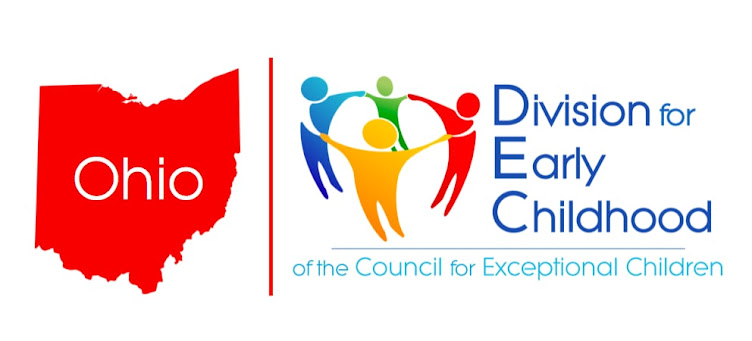The Ohio Division for Early Childhood
(ODEC) is looking to fill some open officer positions, particularly for Secretary (open immediately) and Training/Professional Development Chair.
Below are the specific tasks for the positions, from our organization bylaws:
The duties of the training and professional development committee shall be:
If you are interested or know any colleagues, undergrad/grad students in Early Intervention, Early Childhood Special Education, Early Childhood Education, or related disciplines (speech, occupational, physical therapy, social work, school psychology, etc), or parents who might be interested, please email us at ohio[dot]dec[at]gmail[dot]com .
If you'd like to know more about who are currently serving on the board, see our officer list HERE.
Please note that officers must either be a current member or become a member of the international Council for Exceptional Children and Division for Early Childhood. CEC annual membership starts at $65 (students get a discount) and DEC dues start at $15. There are no additional dues or costs for membership to Ohio DEC.
Information about our organization is below (among all our modes of communication, Facebook is updated most regularly).
Ohio DEC is a state subdivision of the Division for Early Childhood (DEC),
Council for Exceptional Children
How to connect with ODEC:
Web: http://www.dec-sped.org/ohio
Follow us on Facebook
http://www.facebook.com/Ohio.
Twitter: @OhioDEC
Below are the specific tasks for the positions, from our organization bylaws:
The powers and duties of the secretary shall be:
1. To keep careful record of the proceedings of annual
business meetings and the meetings of the Executive Board.
2. To carry on correspondence as necessary for the operation
of the subdivision in the absence of a Communications chairperson.
3. To assume custody of all records except those
specifically assigned to others.
4. To keep accurate lists of Executive Board and committee
members in the absence of a Membership chairperson.
5. To
transfer all records to the new secretary at the time of installation.
6. To
manage the organization’s online calendar.
The duties of the training and professional development committee shall be:
1. To
identify training and professional needs throughout the state
2. To
make recommendations for organization events/activities to meet training and
professional development needs
3. To
seek training approval from state agencies and other accrediting bodies for
professional credentials (e.g., Ohio Department of Developmental Disabilities,
Step Up To Quality, Ohio Counselor, Social Worker, and Marriage and Family
Therapist Board, etc)
4. To
ensure that participants in ODEC-sponsored training events/professional
development opportunities receive the appropriate certificate for which the
session was approved
5. To
represent ODEC as needed at local/state/national conferences and/or meetings
If you are interested or know any colleagues, undergrad/grad students in Early Intervention, Early Childhood Special Education, Early Childhood Education, or related disciplines (speech, occupational, physical therapy, social work, school psychology, etc), or parents who might be interested, please email us at ohio[dot]dec[at]gmail[dot]com .
If you'd like to know more about who are currently serving on the board, see our officer list HERE.
Please note that officers must either be a current member or become a member of the international Council for Exceptional Children and Division for Early Childhood. CEC annual membership starts at $65 (students get a discount) and DEC dues start at $15. There are no additional dues or costs for membership to Ohio DEC.
Information about our organization is below (among all our modes of communication, Facebook is updated most regularly).
Ohio DEC is a state subdivision of the Division for Early Childhood (DEC),
Council for Exceptional Children
How to connect with ODEC:
Web: http://www.dec-sped.org/ohio
Follow us on Facebook
http://www.facebook.com/Ohio.
Twitter: @OhioDEC




